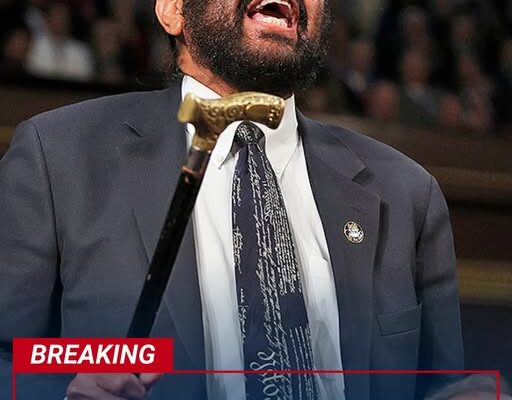In a dramatic and highly contentious move, the U.S. House of Representatives voted to censure Rep. Al Green (D-TX) after he was forcibly removed from former President Donald Trump’s address to Congress. The decision, which saw ten Democrats breaking ranks to join Republicans, marks yet another flashpoint in the ongoing partisan tensions surrounding Trump’s political legacy and the behavior of lawmakers during high-profile events.
The censure, a formal condemnation that falls short of expulsion but serves as a serious reprimand, was passed in response to Green’s actions during Trump’s speech. Green, a longtime critic of the former president, had interrupted Trump’s address in protest, leading to his swift ejection by security. His vocal opposition sparked both outrage and support, depending on which side of the aisle one stood.
What Happened?
During Trump’s address, Green stood and began loudly criticizing the former president over issues ranging from racial justice to his impeachment history. His protest was immediately met with boos from the Republican side of the chamber, and within moments, security personnel approached him. After a brief standoff, Green was escorted out of the chamber.
Republicans swiftly moved to push for disciplinary action, arguing that Green’s conduct was disruptive and disrespectful to the institution of Congress. House Speaker Mike Johnson (R-LA) condemned Green’s actions as “an unacceptable breach of decorum,” stating that such behavior undermines the dignity of legislative proceedings.
“Regardless of personal political disagreements, the House chamber is a place for civil discourse,” Johnson said in a statement. “Disruptions of this nature have no place here.”
Democratic Division
While most Democrats opposed the censure, arguing that Green was merely exercising his right to protest, ten members of his own party voted alongside Republicans to formally rebuke him. This rare cross-party alignment underscored internal divisions among Democrats regarding how to handle vocal opposition to Trump while maintaining congressional norms.
Rep. Jared Golden (D-ME), one of the Democrats who supported the censure, explained his vote by emphasizing the need for professionalism in Congress.
“We can passionately oppose Trump’s policies and rhetoric without resorting to tactics that disrupt official proceedings,” Golden said. “There are appropriate ways to express dissent, and what happened on the floor was not one of them.”
On the other hand, progressive lawmakers rushed to Green’s defense, calling the censure an overreach and a chilling attempt to silence criticism. Rep. Alexandria Ocasio-Cortez (D-NY) labeled it “an unjust punishment for speaking truth to power.”
Green Responds
In a defiant speech following the vote, Green refused to apologize for his actions.
“If standing up against hate, racism, and injustice means I must be censured, then so be it,” he declared. “History will remember those who fought for what is right.”
While Green’s reprimand does not carry legal consequences, it serves as a stark reminder of the deep political fractures in Congress—fractures that remain as sharp as ever in the post-Trump era.



